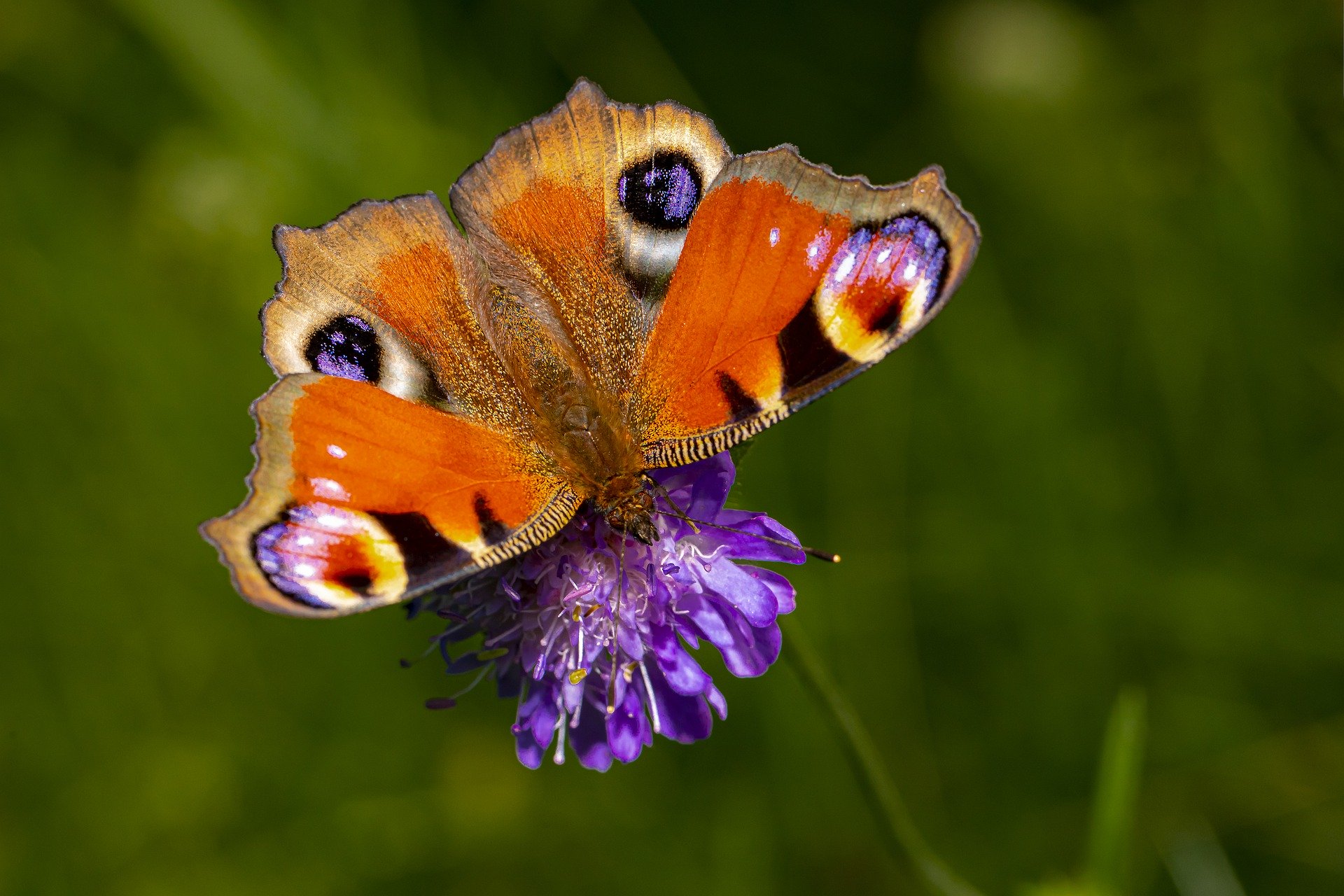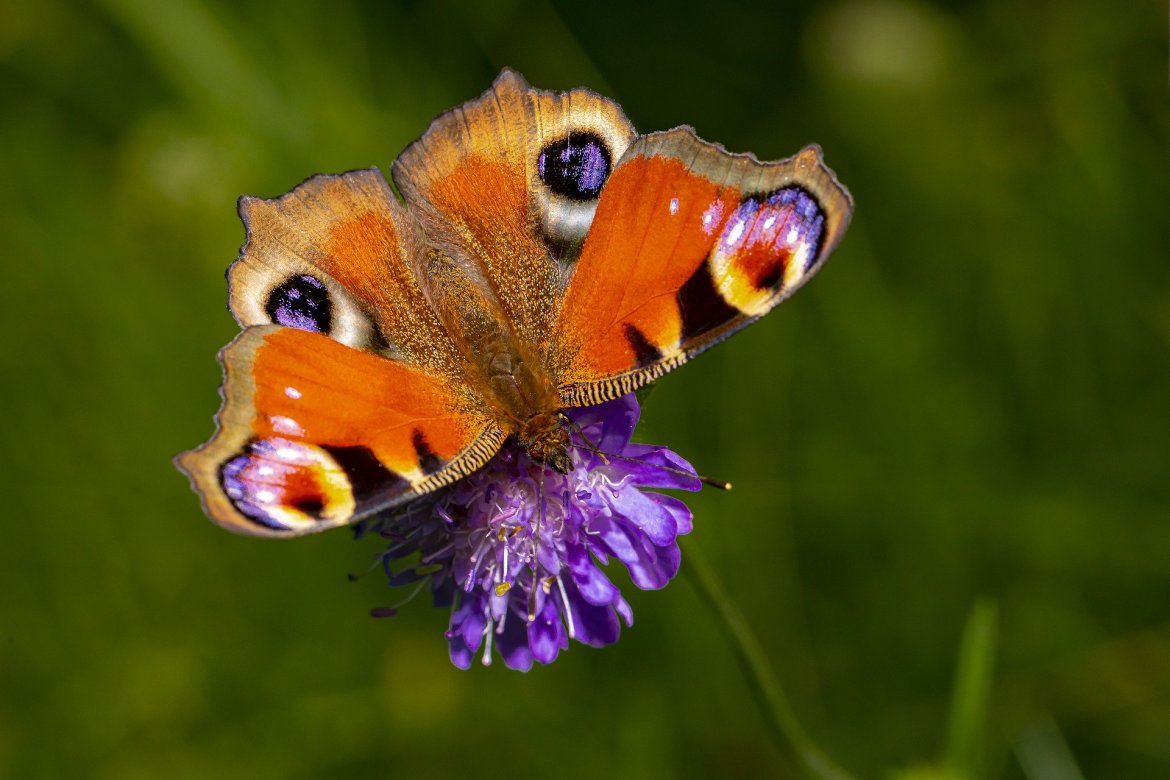
September has began, and with a flip contained in the temperature and a newfound briskness to the morning air; there’s a positive sense of the closing of summer season season.
As summer season season provides decision to autumn, I’m starting to return my consideration to my yard – for now could be an environment friendly time for the green-fingered amongst us to plan and plant a wild flower patch to return to life subsequent spring.
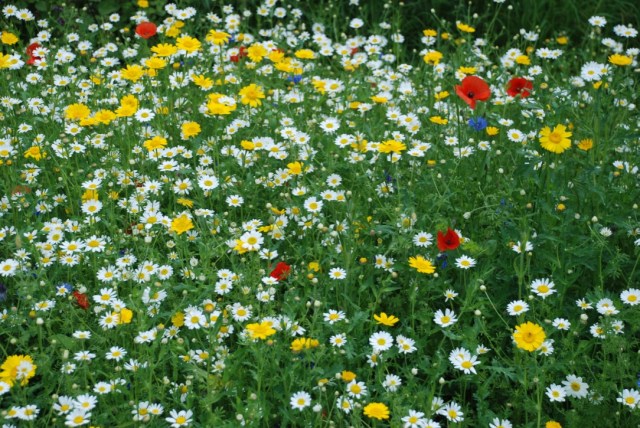
This time of yr, when the summer season season annuals and biennials (vegetation that flower and set seed inside one or two rising years retrospectively, after which die) have achieved flowering for the yr, it’s an excellent suggestion to chop as soon as extra these vegetation by leaving the stems to interrupt down and decay naturally; creating priceless habitats for bugs to dwell in by means of the winter.
Perennial flower stems (these from vegetation which re-occur yr after yr) is also in the reduction of to spherical 20cm and seed heads will scatter all by means of your patch, creating meals for birds together with seeding your patch additional.
Nonetheless presumably the one decision to refresh the yard and create a thriving wild flower patch ‘nature reserve’ for subsequent spring is to pop a seed ball on prime of the soil, water and easily watch it develop.
Seedballs for wild flower meadows
Seedballs have been created by Conservation Scientists to make rising wild flowers from seed simpler.
They’re their very private mini ecosystem, defending seed from birds, ants and slugs and giving them the load loss plan they should have a head begin.

Every wildflower species has a specific flowering time and dimension of time taken to return into flower – some will flower inside the primary yr and others will flower inside the next yr – however as rapidly as in flower, they might present wanted habitat and meals for an abundance of yard wildlife.
Seedball’s Bat Combine
Seedball’s Bat Combine has been created in collaboration with scientists on the Pure Historic earlier Museum to assist yard bats.
Bat Combine accommodates a selected mixture of wildflowers to draw an enormous variety of bugs that bats feed on, together with flowers that launch their perfume contained in the evening time when bats are most vigorous in our gardens.
The combo furthermore has a vegetation with a combination of extended and quick pollen tubes and a ramification of colors and shapes of flower to maximise the variety of bugs that they enchantment to.
A number of Britain’s bat species are in decline, confronted with so much a lot much less roosting locations and declining meals availability. They’ve big appetites, and a tiny Pipistrelle bat alone can eat over 3,000 mosquitoes an evening!
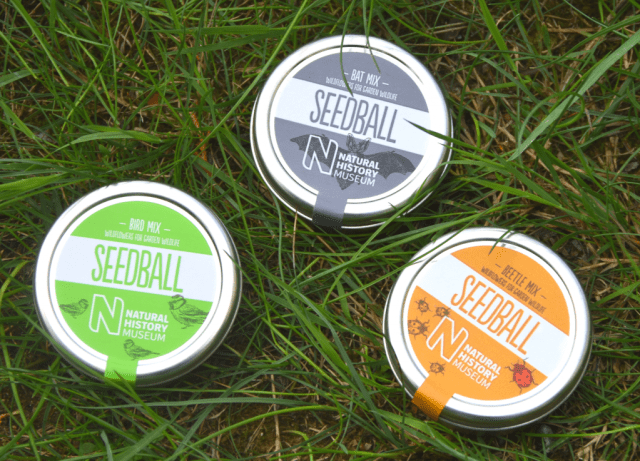
Seedball’s Beetle Combine
Furthermore made in collaboration with the scientists on the Pure Historic earlier Museum, Seedball has created the proper Beetle Combine to draw ladybirds and pollinating beetles.
Flowers contained in the Carrot or Umbellifer household (Apiaceae), and folk with quite a lot of flower heads, appear to be notably taking part to those wanted — however normally neglected — pollinators.
Have you ever learnt that many beetles pollinated the primary flowers 140 million years to this point on the time of dinosaurs?
These critters proceed to be tremendous important to our yard ecosystems.
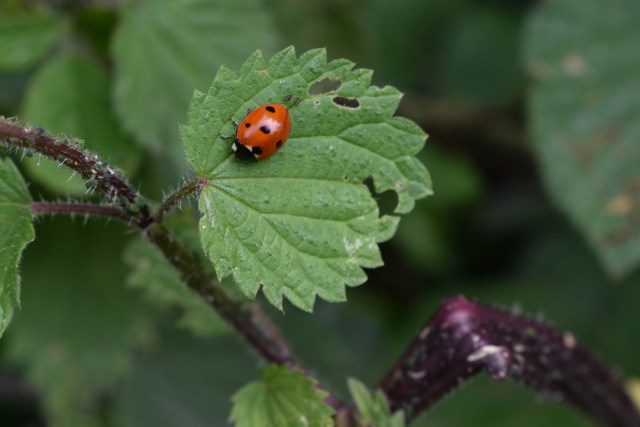
Seedball’s Hen Combine
Hen Combine is designed, fairly merely, to feed the birds — and it’s a much more sustainable probability to purchasing bagged hen feed!
This combine will enhance the variety of birds seen in your yard by boosting the meals current for a variety of birds together with goldfinches, blue tits, chaffinches, greenfinches, robins and starlings,
In keeping with the RSPB, an absence of habitat and meals abundance has result in monumental decline (over 50% contained in the remaining 45 years) of many frequent UK yard hen species.
Whereas in bloom, the wildflowers are wonderful for attracting bugs that many birds feed on and birds would possibly even feed immediately on the vegetation and seeds themselves.
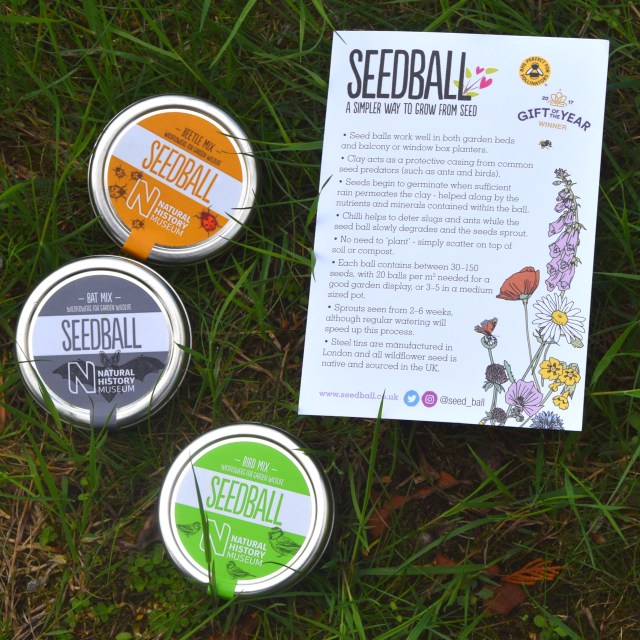
Benefits of autumn sowing
Though we principally have in mind springtime on account of the time to sow wildflower seeds, you don’t should attend till spring to scatter Seedballs – in actuality, there are an a variety of benefits to getting out contained in the yard this time of yr.
In early autumn, the soil continues to be heat after the summer season season, and the additional moisture contained in the air in the course of the autumn and winter months can in actuality assist germination.
Poppies, amongst completely totally different wild flower seeds, truly require a chilly interval before germination – which suggests that sowing them in autumn will give them a head begin near flowering subsequent spring.
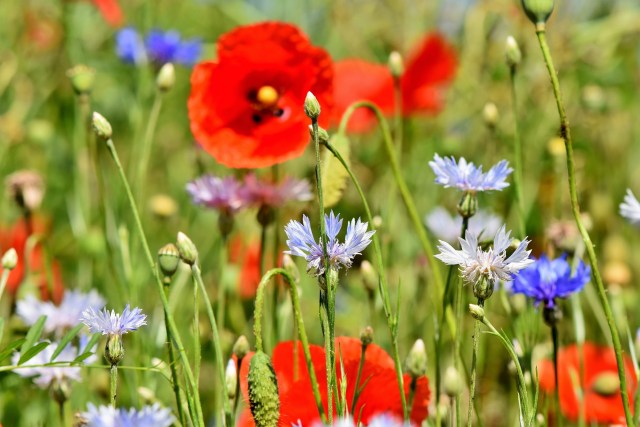
Though spending time over the yard could also be so much a lot much less attention-grabbing than in hotter climes, autumn can nonetheless be an attention-grabbing time to work outside, with its mushy gentle and calmer environment.
The autumn months normally recommend so much a lot much less watering too, as rainfall will enhance — seed balls are already a low upkeep decision to yard, autumn makes them way more so, on account of the change in native climate decreases the necessity to water the underside the place seed balls are scattered.
Factors to ponder when sowing an autumn wild flower patch
Though leaves break correct all the best way all the way down to launch dietary nutritional vitamins into the soil, wild flowers are acknowledged to do higher in poorer soils.
A primary-rate tip is to assemble fallen leaves before seed scattering; and accumulate up these which have fallen subsequently – before they get probability to decay – stashing them in order that as quickly as they break down the next leaf mould is also unfold in your vegetable patch.
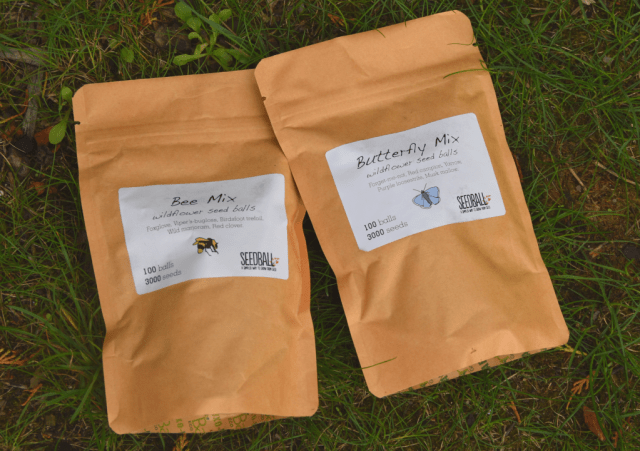
As rapidly because the underside is clear; now could be normally a very good time to ponder sowing bee-friendly vegetation and flowers which is able to even enchantment to butterflies contained in the spring, too.
Scattering a seed combine like Seedball’s Bee Combine will enchantment to solitary bees, honey bees and bumblebees. Every seed ball accommodates roughly 30 seeds from a mixture of bee-friendly vegetation advisable by the Bumblebee Conservation Notion; resembling Birdsfoot Trefoil, Foxglove, Crimson Clover, Viper’s Bugloss and Wild Marjoram.
They’ve furthermore added pollinator-friendly annuals resembling Chamomile, Cornflower, Corn marigold, and Evening-flowering catchfly — which may be discovered of their Butterfly combine, too.
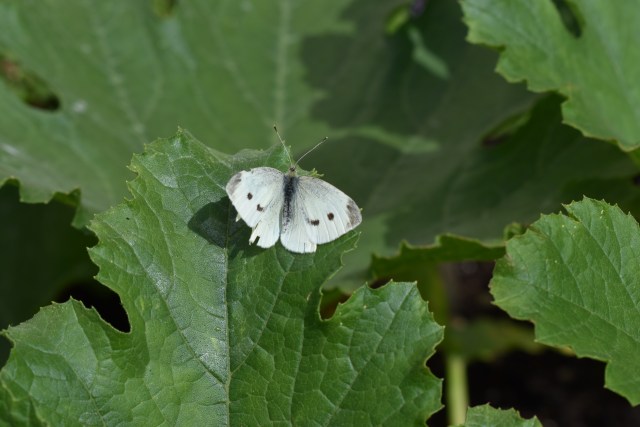
The Seedball Butterfly Combine is a mixture of native wildflowers — principally purple, pink and blue flowers — designed to draw butterflies to our gardens, balconies and window packing containers.
Every seed ball accommodates roughly 30 seeds from a mixture of flowers advisable by Butterfly Conservation: Purple Loosestrife, Overlook-me-not, Musk mallow, Crimson campion and Yarrow.
Win! Autumn Seedball bundle: Attraction to yard birds, bats, beetles, bees and butterflies
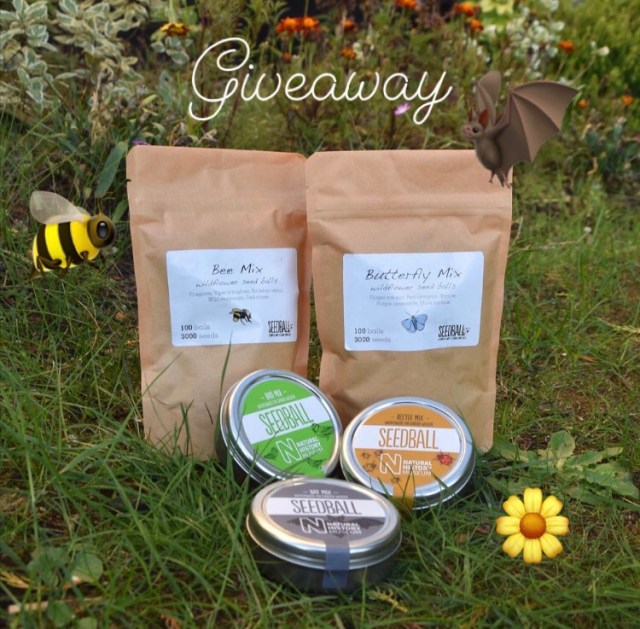
I’ve teamed up with Seedball to supply one fortunate winner the prospect to win this bundle of Seedball wildlife-themed mixes worth £42 — wonderful for bringing wildlife into your yard.
Prize Bundle consists of…
- 1 x Bat Combine wildflower tin
- 1 x Beetle Combine wildflower tin
- 1 x Hen Combine wildflower tin
- 1 x Bee Combine bag containing 100 seed balls
- 1 x Butterfly Combine bag containing 100 seed balls
TO ENTER: In case you happen to’d wish to be in with a chance of worthwhile, inform us why you’d love this prize. Go away your reply contained in the solutions beneath by twenty third September 2020.
One fortunate winner is maybe chosen to win this prize bundle, and notified on twenty fourth September 2020. Opponents open to UK Residents solely. Good luck!
